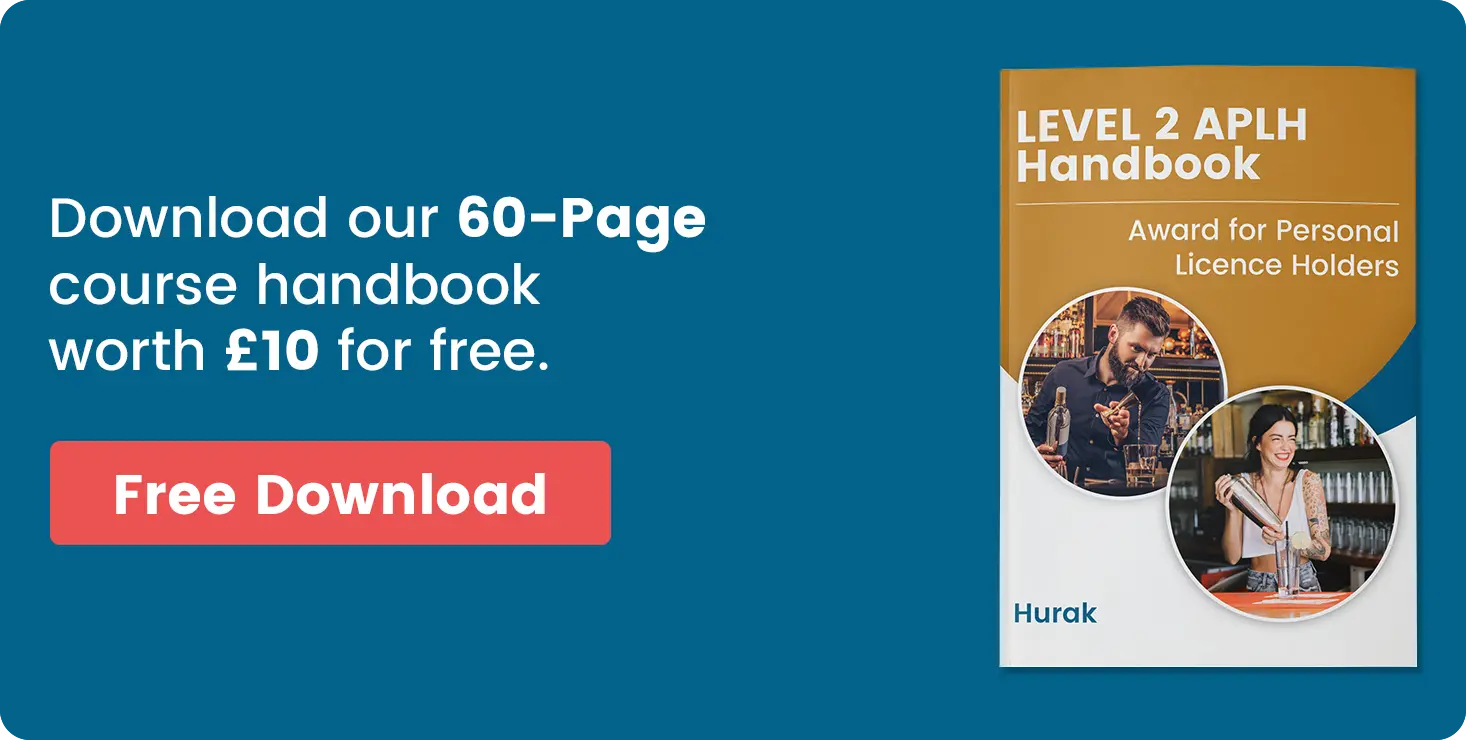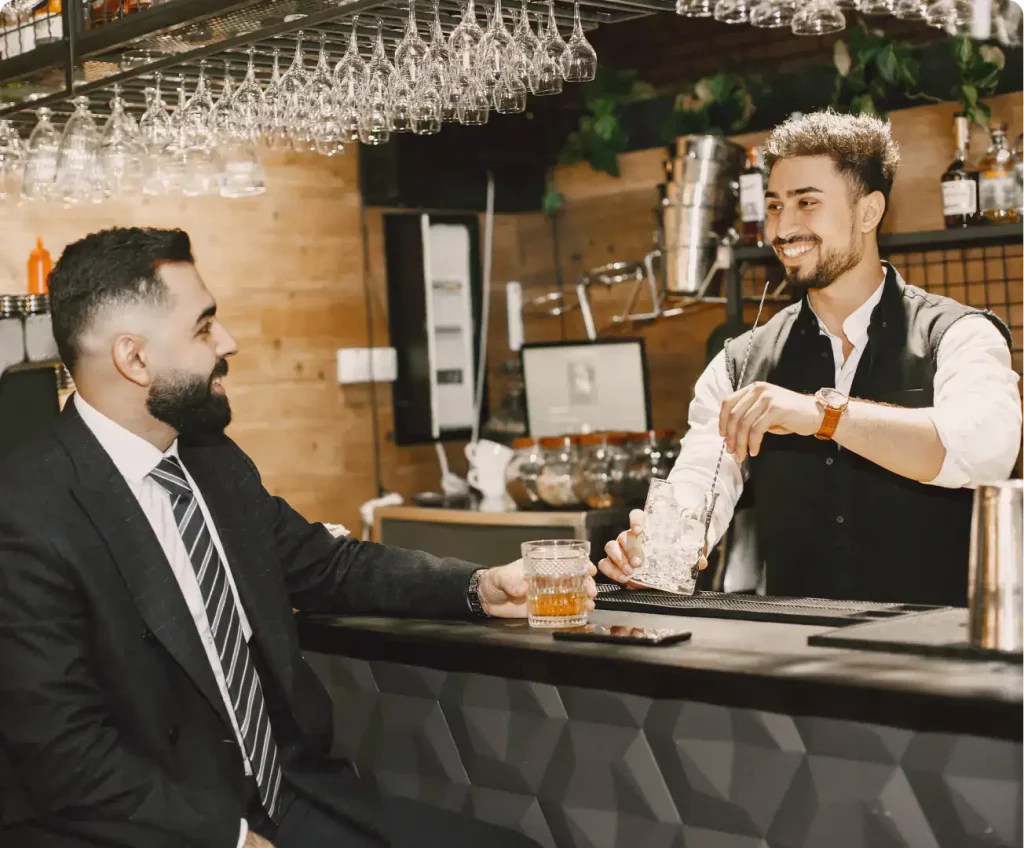
Whether you’re opening a pub, managing an event space, or running a hotel bar, the Licensing Act 2003 is the legal backbone of alcohol and premises licensing in England and Wales. If your business involves selling or supplying alcohol, hosting entertainment, or serving late-night refreshments, understanding this law is crucial. The type of licence you need and how to stay compliant depends on the activities you’re planning, and failing to follow the rules can lead to serious consequences.
This guide breaks everything down in plain English, what the Licensing Act covers, the different types of licences (like personal and premises), the four key licensing objectives, common offences to avoid, and how to get licensed. This article will give you the clarity you need to operate with confidence.
In Scotland, alcohol licensing is covered under the Licensing (Scotland) Act 2005.
What is the Licensing Act 2003?
The Licensing Act 2003 is the legislation that controls the sale of alcohol, provision of entertainment, and late-night refreshment in England and Wales. It introduced a single, streamlined licensing system to replace multiple older laws.
The Act is administered by local councils (called licensing authorities), who assess and issue licences based on the nature of the business and how it aligns with public safety and wellbeing.
You need a licence under this law if your venue or event involves:
- Selling or supplying alcohol (on or off the premises)
- Regulated entertainment, including live or recorded music, dance, plays, and film screenings
- Late night refreshment, such as serving hot food or drink between 11 pm and 5 am
These are called licensable activities. Carrying them out without a valid licence can lead to fines, closure, or even imprisonment.
What are the four licensing objectives?
Every licensing decision made under the Act must uphold these four licensing objectives:
- The prevention of crime and disorder
- Public safety
- The prevention of public nuisance
- The protection of children from harm
Applicants must show how their business or event will promote these objectives when applying for any kind of licence. This is especially relevant for hospitality businesses operating late hours, serving alcohol, or attracting large groups.
Types of licences under the Licensing Act 2003
There are several key licences issued under the Act, depending on the activity and the individual or venue involved:
Premises Licence
This licence allows a venue (pub, bar, restaurant, hotel, etc.) to carry out licensable activities.
- Required for ongoing alcohol sales, entertainment or late-night food/drink
- Must specify operating hours and licensable activities
- It may come with conditions set by the licensing authority
Learn more: Premises Licence Explained What It Is and How It Works for Your Business
Personal Licence
This licence is held by an individual and allows them to authorise the sale of alcohol at a licensed premises.
- One Designated Premises Supervisor (DPS) with a personal licence must be named on every premises licence where alcohol is sold
- Requires passing an accredited qualification like the APLH
Download our Personal Licence (APLH) Test Prep Book for free!
×
Temporary Event Notice (TEN)
This is a simpler alternative for short-term events:
- Ideal for festivals, weddings, pop-up bars or private parties
- Allows licensable activities for up to 499 people, for a limited time
- Limited number of TENs per person and per location per year
Learn more about TENs in this article: Do you need an alcohol licence for a party?
Club Premises Certificate
For qualifying members’ clubs (e.g., sports or social clubs):
- Permits the supply of alcohol and entertainment to members and guests
- No need for a personal licence holder or DPS
For a quick reference to help you better understand the various licences available under the Licensing Act 2003, refer to the infographic below. It simplifies the key differences between the different types of licences, so you can make the right choice for your business or event.

How to apply for a licence
The application process varies slightly by licence type, but typically includes:
- Completing an application form via your local council
- Advertising the application on the premises and in a local newspaper
- Submitting supporting documents (e.g., premises plan, consent forms)
- Paying the application fee (varies by rateable value and licence type)
- Possibly attending a hearing if objections are raised
Section 182 Revised Guidance (Gov.uk)
Once granted, a licence may include specific conditions around opening hours, security, noise management, and more. Breaching these terms can result in penalties.
Common offences under the Licensing Act 2003
Failure to comply with the Act can lead to criminal charges. Key offences include:
Offence | Description | Penalty |
Selling alcohol without a licence | Applies to both businesses and individuals | Unlimited fine, up to 6 months imprisonment |
Selling alcohol to someone under 18 | Even unknowingly | £90 fixed penalty or prosecution |
Not complying with the licence conditions | E.g., staying open later than allowed | Varies; licence can be suspended or revoked |
Not displaying a blue notice during the application | Required for premises licence applications | The application may be rejected |
Summary and why licensing matters for hospitality
The Licensing Act 2003 is essential knowledge for anyone operating in hospitality. From pubs and bars to food trucks and event organisers, staying compliant helps protect your business and your customers.
Understanding which licence you need, applying correctly, and respecting the four licensing objectives is not just a legal requirement; it’s a mark of professionalism in a responsible industry.
Comply with the Licensing Act 2003: Get your Personal Licence today!
Under the Licensing Act 2003, selling alcohol requires a Personal Licence. Hurak guides you through the entire process to ensure you’re fully licensed.
✅ Step 1: Complete the Level 2 APLH Personal Licence Course
Gain the knowledge you need to pass the exam and meet the legal requirement for holding a Personal Licence.
✅ Step 2: Apply for Your Personal Licence
Once you pass the course, submit your application to your local council.
Take the first step towards full compliance with the Licensing Act 2003 and legally manage alcohol sales.
FAQs
Who enforces the Licensing Act 2003?
Local authorities (licensing authorities) are responsible for enforcing the Licensing Act 2003, often working in partnership with the police, environmental health officers, and trading standards.
Do I need both a personal and premises licence?
Yes, if your business sells alcohol on an ongoing basis, you’ll typically need both:
- A premises licence for the venue
- A personal licence for the individual supervising alcohol sales (usually the DPS)
What is a Designated Premises Supervisor (DPS)?
A DPS is the person named on a premises licence who holds a personal licence and is responsible for the day-to-day management of alcohol sales.
How long does a premises licence last?
Once granted, a premises licence lasts indefinitely unless it is surrendered, revoked, or suspended. However, you must comply with all conditions and pay annual fees.
Can I sell alcohol at a private event without a licence?
You may need a Temporary Event Notice (TEN) if the event involves selling alcohol, even at a private venue. Giving away alcohol for free may also fall under licensing rules if it forms part of a ticket price or entry fee.
Does the Licensing Act 2003 apply in Scotland?
No. In Scotland, alcohol licensing is governed by the Licensing (Scotland) Act 2005, which has its own requirements and licensing objectives.
What is a blue notice for a premises licence?
A blue notice informs the public that a licence application has been made, allowing 28 days for objections.
What are the relevant offences under the Licensing Act 2003
Some examples of relevant offences include alcohol related crime, drug offences and violence. The relevant offences could impact your licence eligibility.
Can I apply for a premises licence online?
Yes. Many local councils offer online application portals for premises licences.




